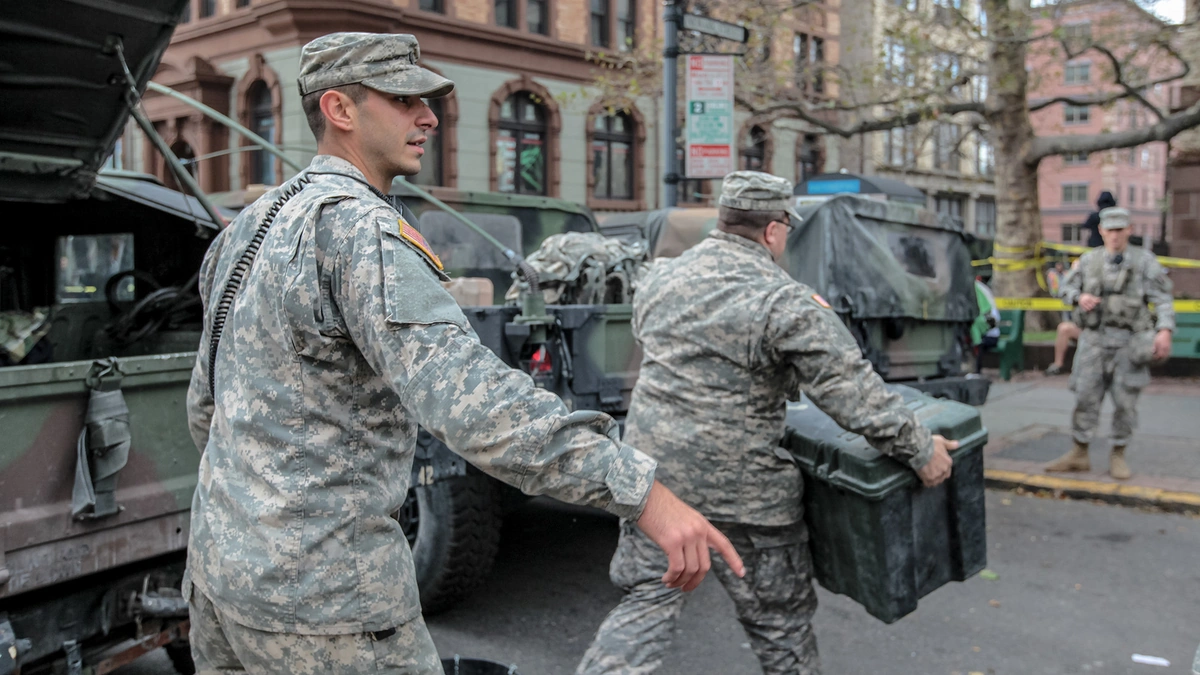The hum of a helicopter, the sight of camouflage in city streets – it’s a scene that can spark a lot of questions. And increasingly, those questions are being asked in courtrooms. We’re not just talking about whether the National Guard deployments are effective; we’re diving into the legality of them. What fascinates me is how this seemingly straightforward issue is getting tangled up in a web of legal challenges, revealing a complex interplay between state and federal powers.
Why Are Legal Challenges Surging?

So, why the sudden uptick in legal scrutiny? Here’s the thing: the role of the National Guard has evolved. It used to be primarily about responding to natural disasters or overseas deployments. But now, we’re seeing them used more frequently for domestic law enforcement, often in response to protests or civil unrest. This shift raises critical questions about the Posse Comitatus Act, which generally prohibits the use of the military for domestic law enforcement. The legal challenges often center on whether these deployments circumvent that act. A common argument is that these deployments blur the lines between military and police powers, potentially infringing on citizens’ rights. But, it goes deeper than that. There’s the question of federal versus state control, and whether governors are overstepping their authority or if the federal government is pushing its boundaries.
The Shifting Role of the National Guard
The role of the National Guard is, let’s be honest, undergoing a significant transformation. It’s not just about responding to hurricanes or assisting in overseas conflicts anymore. We’re seeing them deployed in scenarios that were once considered strictly the domain of civilian law enforcement. Think about it: crowd control during protests, assisting with border security, even providing support during public health crises. This expansion of their responsibilities raises legitimate concerns about mission creep and the potential for overreach. But, it also speaks to the increasing demands placed on state and local resources. A common sentiment is that the National Guard provides a necessary backstop when civilian agencies are overwhelmed. The question then becomes, at what point does this assistance cross the line and infringe upon constitutional rights?
Key Legal Arguments Against Deployments
What are the actual legal arguments being thrown around? Well, many lawsuits hinge on the aforementioned Posse Comitatus Act. Plaintiffs argue that using the National Guard for law enforcement duties effectively militarizes civilian life. They suggest that it undermines the separation of powers and erodes trust between the public and both law enforcement and the military. Another key argument revolves around the First Amendment. When the National Guard is deployed to monitor or control protests, it raises concerns about freedom of speech and assembly. Are these deployments chilling protected expression? Are they being used to suppress dissent? These are vital questions that courts are grappling with.
Implications for Cities and States
These legal challenges don’t just exist in a vacuum. They have real-world implications for cities and states. If courts rule against the legality of certain National Guard troop deployments , it could significantly impact how states respond to emergencies and civil unrest. Imagine a scenario where a city is facing widespread rioting, but the governor hesitates to deploy the National Guard for fear of legal repercussions. This could leave law enforcement overwhelmed and unable to maintain order. What initially seemed straightforward quickly evolves into a complex scenario.
The Future of National Guard Deployments
So, what does the future hold for National Guard deployments in US cities ? That’s the million-dollar question. It really boils down to how courts interpret existing laws and how willing they are to defer to the judgment of governors and the federal government. We might see stricter guidelines put in place, limiting the types of situations in which the National Guard can be deployed. Or, we could see a continued expansion of their role, with legal challenges becoming a routine part of the process. Another aspect to consider is the evolving nature of threats. With increasing concerns about cybersecurity and domestic terrorism, the National Guard may be called upon to play an even greater role in protecting critical infrastructure and responding to unconventional attacks. This could further blur the lines between military and civilian responsibilities, leading to even more legal battles. These legal challenges for the National Guard are definitely not going away anytime soon. And that makes it more critical than ever to understand the arguments on both sides and to consider the long-term implications for our society.
FAQ | National Guard Deployments and the Law
Frequently Asked Questions
What is the Posse Comitatus Act?
It’s a federal law that generally prohibits using the U.S. military for domestic law enforcement.
Why are National Guard deployments being challenged in court?
Many argue deployments for law enforcement violate the Posse Comitatus Act and infringe on civil liberties.
Can a governor deploy the National Guard without federal approval?
In many cases, yes, for state active duty. Federal deployments require federal authorization.
What are the implications if deployments are deemed illegal?
States might have limited options for responding to emergencies and civil unrest, impacting public safety.
How often is the National Guard being deployed in US cities?
Deployments have increased in recent years, particularly in response to protests and civil unrest.
Are there concerns about federal government overreach?
Yes. Some worry the federal government uses the National Guard to bypass state authority.
The conversation around domestic deployments isn’t just a legal debate; it’s a reflection of our evolving understanding of security, freedom, and the role of the military in civilian life. It’s something we all need to pay attention to, because it affects the very fabric of our society.




